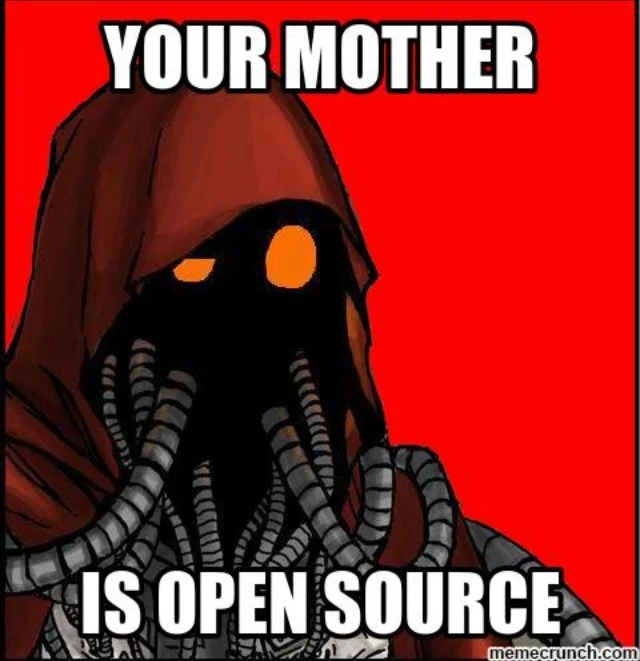Or any other alternate shells that aren’t bash?
I’ve used powershell in previous jobs and if you learn it really well I cannot deny it is super powerful.
For a college project, a friend of mine somehow made a hexadecimal file dumper with it, with formatting and everything (think like what you would see in wireshark) in one, reasonably long, line of powershell.
However I’m just not a big fan of it personally for syntactical reasons (even with the syntax being super logical) and much prefer bash, or other unix-like native shells. I’ve been thinking about taking
zshfor a spin recently to see what it’s like.I use powershell for some scripting. I’ve been using .net/powershell forever and I know it better than python. If bash can’t handle it in a few lines, and I don’t have to use python, I’ll go powershell.
At work I use powershell to ssh into Linux boxes fairly regularly.
The idea of someone using powershell when you are on Linux is a form of self harm and you need to reach out as its clearly a cry for help.
Only when I’m doing MS shit for work. Otherwise I find it kind of a pain. I get that some of it’s ideas are nice, but functionally it doesn’t actually do anything for me on unixy systems that bash doesn’t so I don’t. I’m not going to install it on all my servers so using it for scripting doesn’t make sense and I do more Linux admin than MS.
I used to use fish but I’m learning Unix right now and am trying to use only defaults so I can learn freebsd the way it exists on a dvd, so right now I’ve been using the Bourne shell
If you are using FreeBSD, you are probably using the Almquist Shell.
https://en.m.wikipedia.org/wiki/Almquist_shell
BSD has not used Bourne since the 90’s. Bash is of course the “Bourne Again Shell”.
For Linux fans, “dash” is the (Debian Almquist Shell). It is the Linux version of the BSD shell. Dash is the default /usr/bin/sh in Debian and Ubuntu I think. So, pretty close to the same shell as FreeBSD.
That’s the one!
SO much of the documentation I’ve seen refers to the Bourne shell I just assumed thats what I was using!
I use both fish and zsh
somehow
That’s… a big gap. I think I’d just be confused all the time if I had to switch between them.
I mean, missing commands say that it’s zsh but everything else says that it’s fish.
I use fish

Not that kind of “use!”
At work we use it sometimes on Linux because we maintain a script that needs to work on multiple platforms, ps1 did that in this usecase better.
Came down to ps1 on Linux was better and more predictable than bash on windows.
Sadly.
Same, only time we used it is when we needed a script that was running in Windows and Linux, easier to maintain one script that 2 in 2 languages
only for extraordinarily cursed situations where games need it in wine/proton
Honest question: why?
Because, as someone who dislikes MS as much as possible, Powershell is one of the few things they done right :) And when you manage mostly Windows servers and a few Linux servers, why not choose a solution that works on both platforms? And yes, perl, python, ruby, they all work on Windows too, but its just not comparable to powershell on Windows.
So i can understand why someone asks this question :)
Personally, i keep them both seperated, powershell on Windows, bash on Linux. But i can understand why someone might choose to go “powershell all the way” :)
Powershell is a better language but is absolutely dogshit for interactive use IME. It’s SO wordy and the excessive use of camelCase is annoying and I yearn for simple GNU coreutils every time I touch it. Like, give me
tail -fplease, why doescatalso have a-Waitoption or whatever the fuckUnderstandable sentiments. I’m a MS Edge user, for instance, and despite slowly switching almost all my other services, MS Edge just gets it all right. Brave’s featureset is basically a lesser version, and Firefox is getting better, but Microsoft (of all companies) genuinely made a great browser.
Why not? It seems like a well supported shell on windows that isn’t terrible.
It seems like a well supported shell on windows
But you aren’t using Windows. You’re also now adding a .NET Core requirement for any Linux box wanting to use it. That means limited functionality as its not the full blown .NET framework. So, compared to something like bash, you now have added requirements with less functionality.
To answer your original question though, a lot of people prefer zsh as its got a crazy amount of customization you can do. People also like fish due to it being very friendly and interactive.
For a long time I used a super customized zsh setup. It was, unfortunately, crazy slow and regularly broke on updates. It had precisely all the features and behavior I wanted though. Like you say, zsh is very customizable.
Then I switched to tiling window managers and with that to the alacritty terminal. This made me value start up times and performance, as I was constantly opening and closing terminals. So I spent a ridiculous amount of time optimizing my zsh config to be as fast as possible. This is also what I used for a long time before correcting my ways.
When that device, my work laptop, failed, I had to set up my desktop for work. This involved setting up zsh, which I quickly realized was a lot of work. So, on a whim, I installed fish.
Oh my god. Not only did fish have nearly all the features I wanted out of the box, but it was easy to add plugins (customizations) in a performant way. Fish even had default behavior I didn’t know I needed. And most importantly: it was crazy fast!
Since then I have never left fish. It is so much better than anything I had imagined. At this point I use way more default features as well, so I pretty much only add the tide prompt and zoxide. I also have a functions and abbreviations folder which is essentially my zsh alias collection.
The crazy part is really how much faster it is though. I really, really love it. And now they’re rewriting it in Rust as well!
limited functionality as it’s not the full blown .NET
This is misleading to the point of being completely wrong
On Linux, you do not have access to Windows UI frameworks like WinForms, the Windows registry, and to System.Drawimg (because it is just a thin wrapper over Win32). Essentially the entire .NET standard library is available on Linux.
I would argue that .NET is actually better on Linux for some things (like web dev).
That said, I can see no reason to use PowerShell on Linux unless you are a .NET dev.
There are PowerShell cmdlets that do not work on Linux. Again, mostly stuff that talks to explicitly Windows services and sub-systems. But that has nothing to do with .NET at all. Also, path separators and case sensitivity is different on Linux. So, cross-platform scripting is a pain.
I’ve once created a profile with about 1500 lines of code for powershell, managing AD at work. It was great to learn, it’s great for scripting and it’s very intuitive (for me at least), I also liked working with objects.
I wouldn’t use it on Linux though, I’m not sure how well integrated it is.
I’m using fish at the moment, desktop and server, and I like it primarily for the functions and the autocomplete
bash is also well supported in Windows via WSL
Development. Azure especially.
There’s an AZ CLI for every PS Azure module though.
There are reasons for the SDK and reasons for the CLI. Both have their place.
Because I have to admin Windows boxes and M365. There are PS modules for lots of different MS things.
I didn’t know you could use it on Linux. I’d consider it because I’ve used it at work for years and my experience with bash is far more limited. Powershell is pretty damn intuitive. I’ve gotten a lot further with it than I have any other scripting language.
exchange online shell
Because I never learned Bash scripting, for whatever reason, and WSL wasn’t yet available to load on my work PC at the time.
If you run VMware, you can use PowerCLI to interact with your vSphere servers, and PowerCLI requires PowerShell and uses similar syntax. I haven’t tried it on Linux yet, but I would assume that that might be a valid use case.
vSphere has SSH access. This isn’t a reason to use PSH on Linux.
It’s been a while for me and i can’t try things out atm, but i think vSphere SSH access is only for managing the appliance itself, not objects like VMs in a vSphere cluster. For that, you would have to use the Python SDK or PowerCLI.
Why do you care why OP asks if people use something?
I mean what’s the practical purpose?
PS is much nicer to write scripts. It has QoL
Uhhhh…no? It has zero integration on Linux, which is why I asked.
zero intergration? Thats just wrong. I’d argue you can do anything with PS on linux that you can with bash.
Perfect example:
Bash:
sudo dnf install pythonOR
PS: `Invoke-Expression ‘sudo dnf install package-name’
Stupid to even try and make the argument that PS is a viable solution to anything at all with its ignorant declarations of obvious usage.
With PowerShell on Linux you’d never run dnf starting with Invoke-Expression. It’s completely unnecessary.
This feels like you either legitimately don’t know how it works so are assuming, or are making it more complicated on purpose to make bash look ‘better’.
I’m not saying PowerShell should be used on Linux over bash, but your example is not a good one.
The practical purpose of asking is to get a feel for how many people use it.
Less tongue in cheek though, it sounds like you have the same questions as OP. If you’re curious what might be the practical purpose, why not ask people who use it why they do instead of berating OP for asking if anyone uses it?
Well by that logic, it’s a way for Windows users to not learn the native tooling available, but not skip any steps. It doesn’t make any sense.
Learning Powershell in a Linux environment is going to just absolutely be a crutch and fuck up your ability to interact with other Linux systems that don’t share your particular environment.
As someone who used bash on Windows through MSYS, I don’t see the issue. It was different, not inferior, to cmd and PowerShell. If someone wants to use PowerShell on Linux why be such a condescending jerk about it? Sometimes people just wanna try things for the fun of trying new things.
only when dealing with azure for work. otherwise bash/python work just fine and have for me for the last 30 odd years.
I use it for some things. It’s good for file batch processing, for example. I could probably do those things in python but I use C# and powershell at work so I know .net better.
Zsh is nice, particularly with a couple of plugins
i’m a big
nushellfan.i was once sitting where you are. when PowerShell was released on Linux i thought about switching and read the manual. i really liked some of the philosophy:
- descriptive names for commands.
catandlshave canonical short names to save disk space on the systems they were created for. this is no longer a constraint and aliasing a longer command name is better than “git gud n00b” when it comes to discoverability. - structured data. “everything is a string” is great when programs play nice. it breaks apart when programs prefer human readable output or worse don’t provide structured output, like
—format=jsonor whatever. - modern control flow semantics. yes, pipes are great, let’s keep those, but why do i have to rtfm every time i want to bang out a simple script with an if-else control flow?
i looked around at a few solutions.
xonshuses Python.eshellis integrated into emacs and uses Elisp. i briefly tried to hack something together using Kotlin Script. and yeah, i tried PowerShell.i settled on
nushellnot just because it fulfilled the above requirements, but also:- simple data types. string, number, list, record, and table are about the only types you deal with.
- wide support for structured data. JSON, YAML, TOML, CSV, etc have parsers built in.
jqand other such tools are made irrelevant because you just load it intonushellquery with a unified DSL using common syntax likeselectandwhere.
honestly, these are the killer features. there are so many more. context aware autocomplete, modules and overlays, super easy custom completions, extension functions (one of my favorites is
git remote open), cross platform (if you’re forced to use Windows), plugins, and i can contribute since i do Rust development for work.give PowerShell a shot, but i think
nushellis the happy mediumFinally! Nushell is awesome. The infrequent deprecations are a bit annoying, but I prefer them to having a bad program go 1.0
Hi! I’m interested in trying Nushell at some point, although I keep putting it off…
Would you share your experience on a couple of items?
- How easy was it to get started?
- Do you find, or did you at least find in the beginning, that it is more suited for some particular tasks than using it as your day-to-day shell? If so, what were those?
- Can you integrate it with existing tools that you know how to use from other shells, like
greporawk?
sure!
- it wasn’t tough to get started. it generally reads like a normal Unix shell with some exceptions. i don’t think many Linux power users would have a hard time doing basic file system tasks or launching programs, etc. there are going to be some issues, like you can’t just paste
bashcommands in because&&isn’t supported, multiline strings don’t require the\character, and string escaping is totally different. those are intentional deviations that i personally agree with, but they take some getting used to. and then obviously stuff that is specific tonushelllike working with tables. - definitely the killer feature out of the box is manipulating, parsing, and reading structured data. the “aha” moment for me was when i needed to change a value over a thousand or so JSON objects and did it with a one liner. then i use it with some extra overlays to do stuff like connect to a k8s cluster like
k8s connect (helm stage dev.0)which reads my YAML config and connects to the cluster specified in that file. or making a call to our internal package store to get the latest version by parsing the returned JSON. - it works out of the box with your existing
PATH(orPathif you’re nasty). you can just drop into it and it will have all the path stuff inherited just like if you launched zsh or bash. you’ll have to set that up if you want to use it as a system shell—like i do—, but otherwise it’s pretty seemless.
you can check out my collection of scripts here: https://github.com/covercash2/dotfiles/tree/main/nuenv
ETA: if you do have compatibility problems or need your old muscle memory to do something quick, it’s easy enough to use
bash -c old_script.shor just drop into a different shellThanks a lot! This might just be enough to get me to actually try it!
- it wasn’t tough to get started. it generally reads like a normal Unix shell with some exceptions. i don’t think many Linux power users would have a hard time doing basic file system tasks or launching programs, etc. there are going to be some issues, like you can’t just paste
- descriptive names for commands.

















